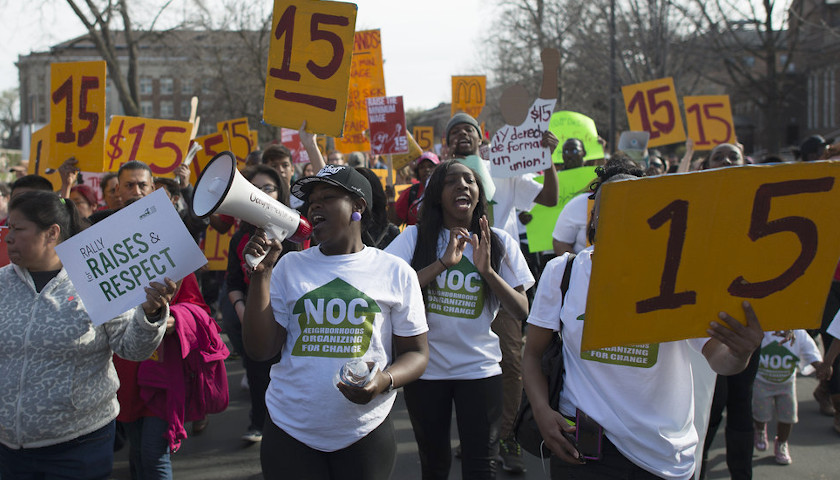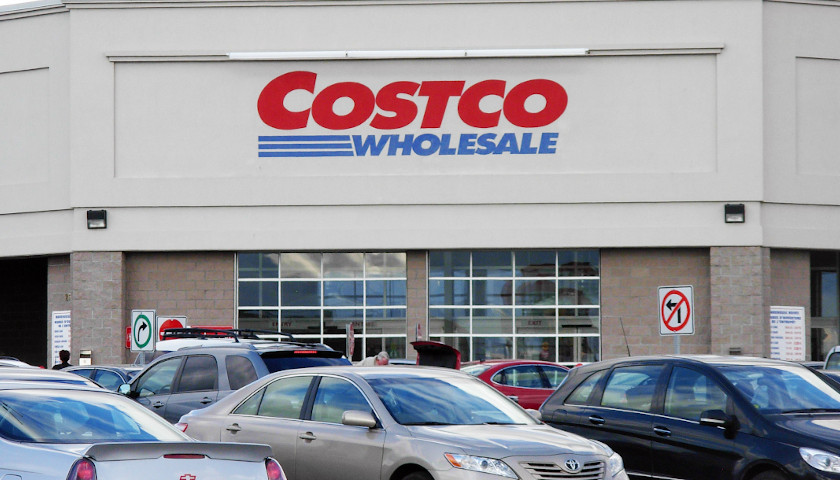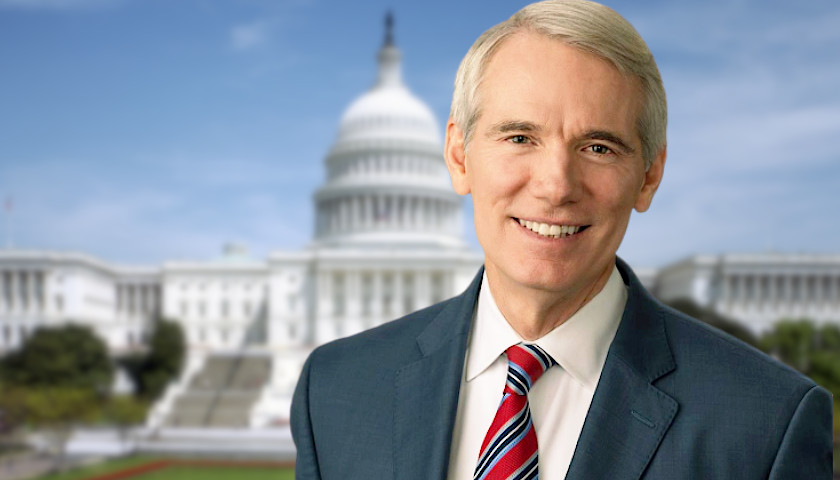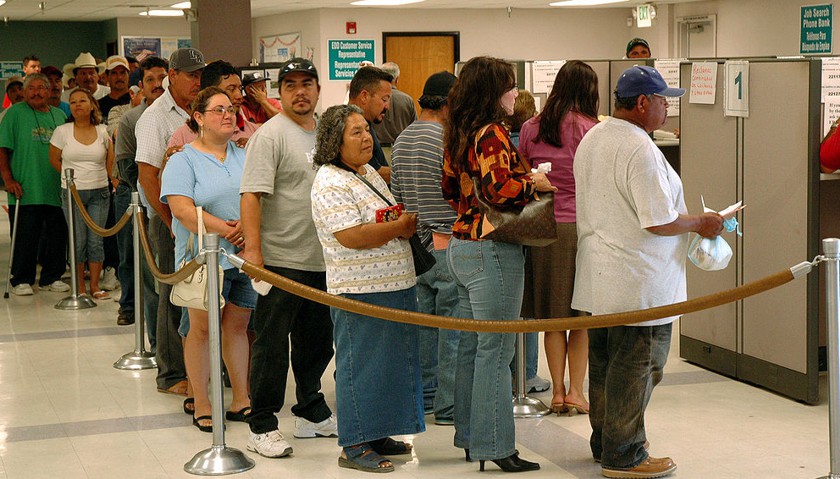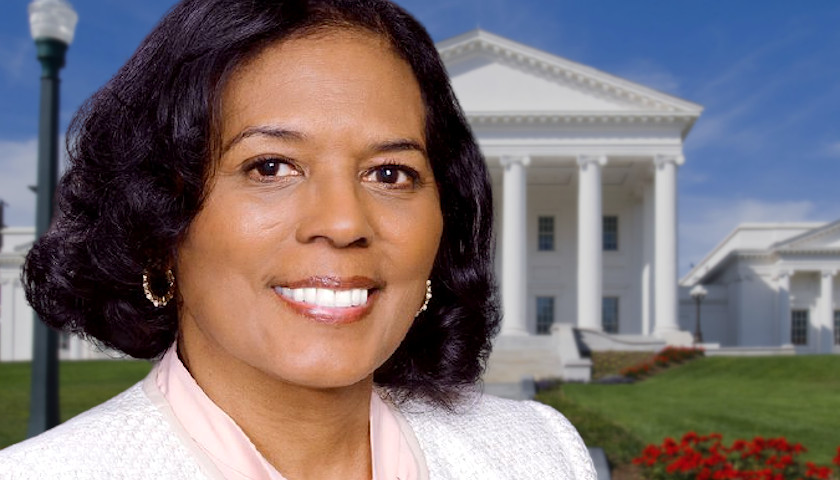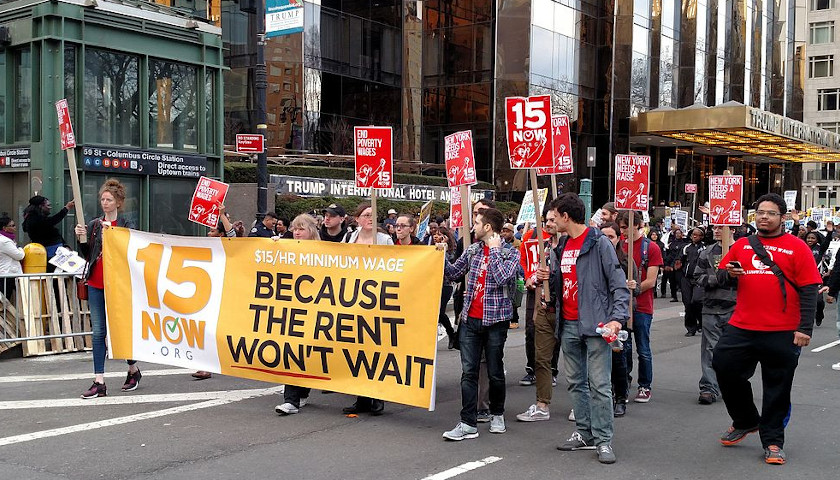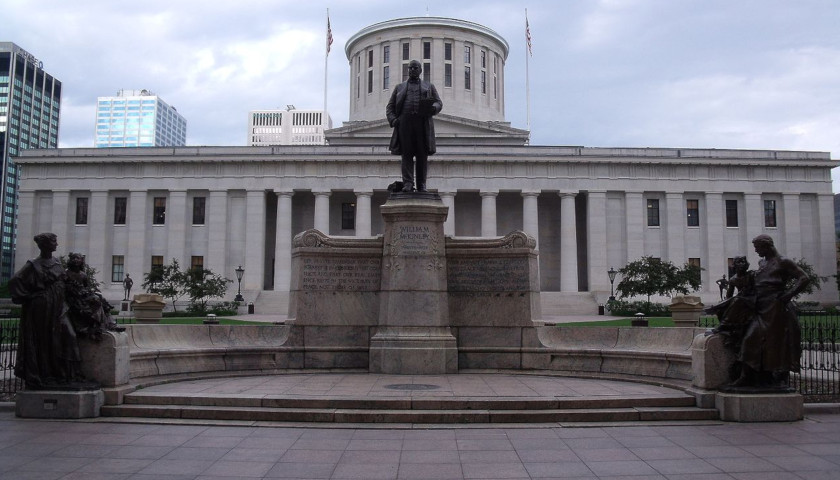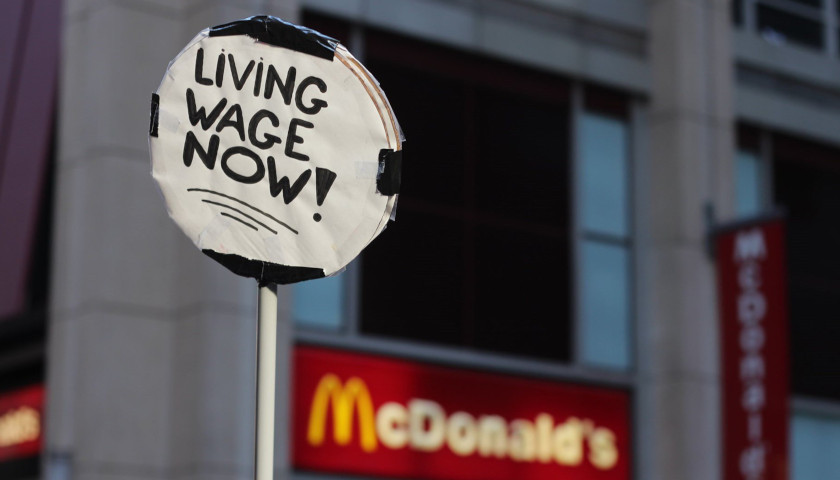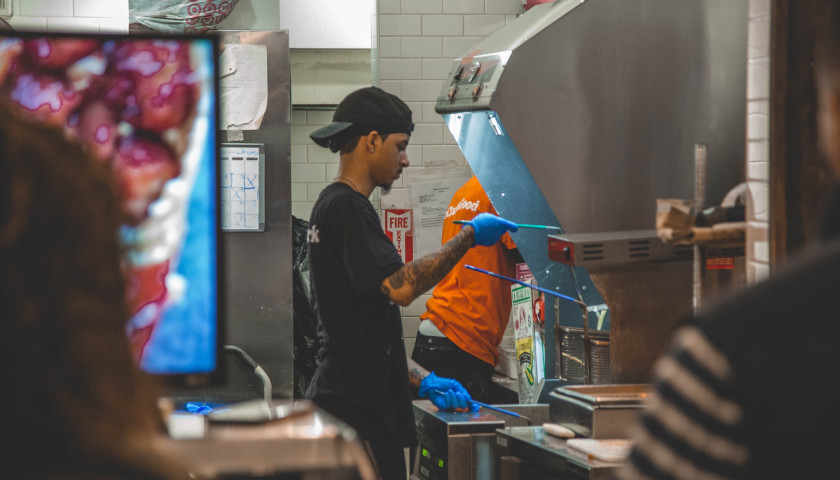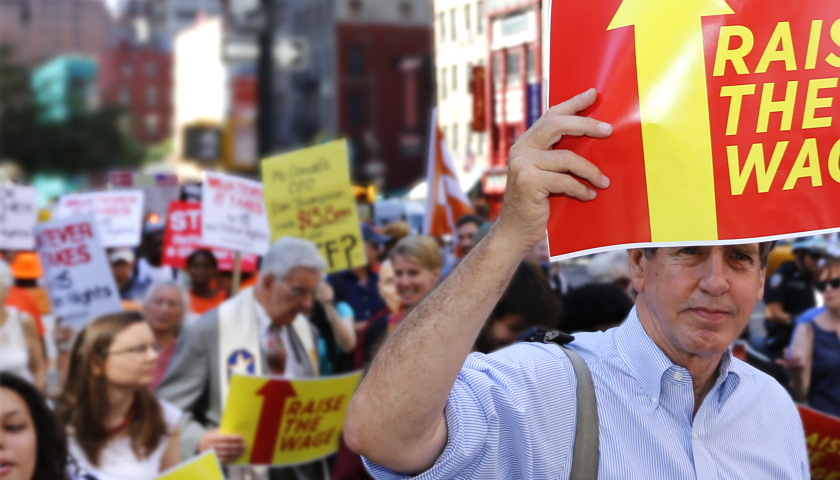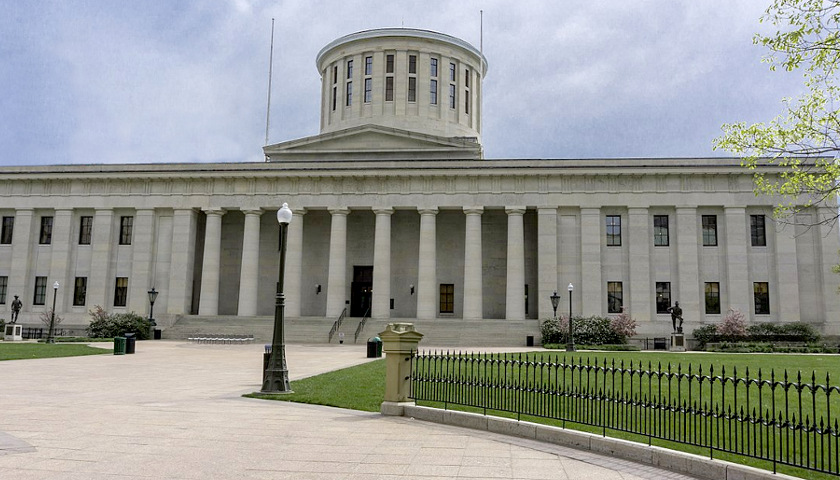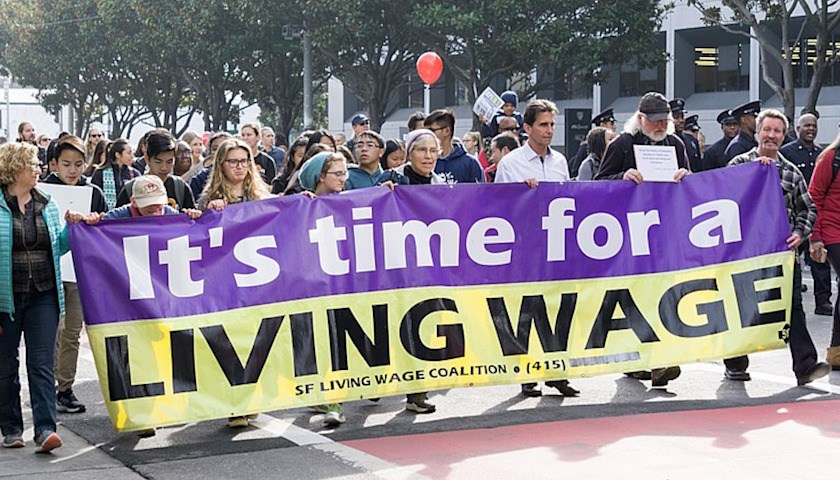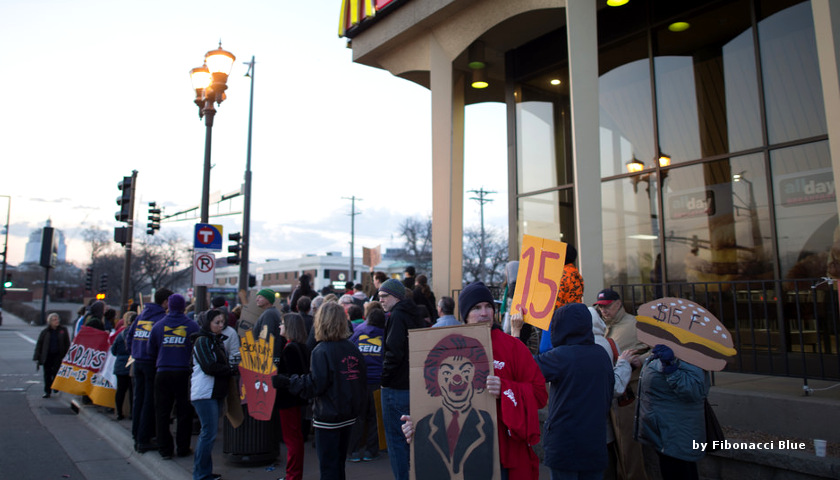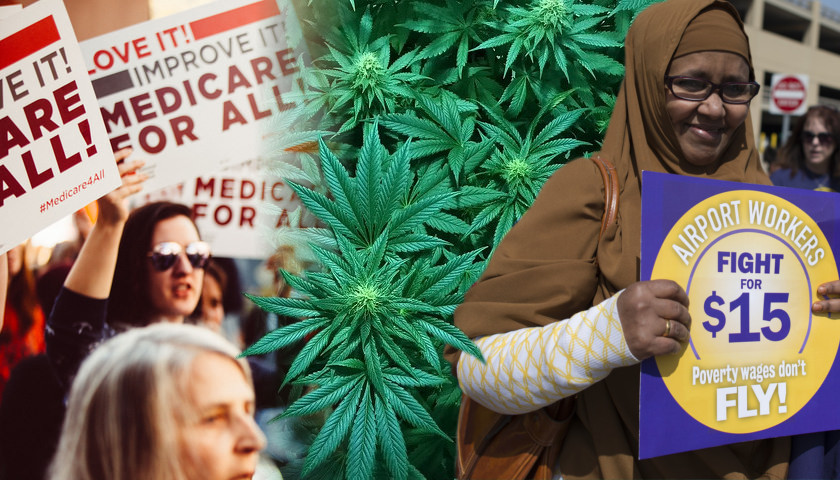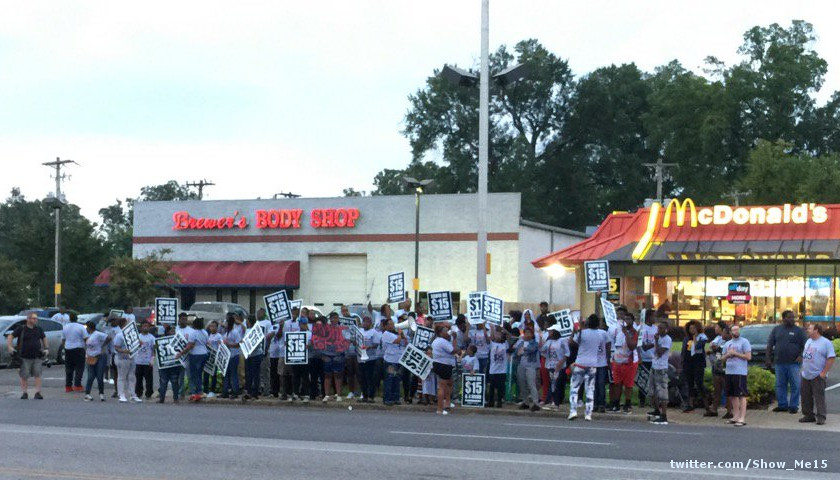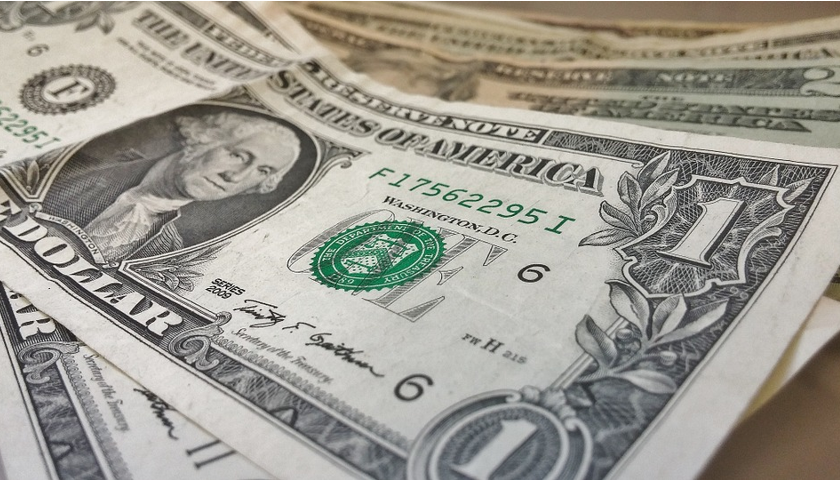Virginia’s minimum wage is going up to $9.25 an hour on May 1. The change is the result of 2020 legislation, part of several pro-worker changes initiated by the Democrat-controlled General Assembly in 2020 and 2021. Advocates say the change will boost the economy by enabling more people to pay rent and spend money in Virginia businesses. But opponents say the increase violates free-market principles and will harm employers who have to increase their hourly compensation while dealing with a COVID-19 economy.
Read the full storyTag: minimum wage
Analysis: Maximum Facts About the Minimum Wage
At 2:00 AM on Saturday, February 27, Democrats in the U.S. House of Representatives voted to pass a “COVID relief and economic support“ bill at a cost to taxpayers of $1.9 trillion. The next Saturday, Senate Democrats passed a very similar bill, and President Biden stated he will sign it. This will be the sixth “COVID relief” law and swell the tab for such legislation to a total of $5.3 trillion. The combined cost of these laws to every household in the United States will be an average of $41,036.
Read the full storyCommentary: Job Creation, Not a $15 Minimum Wage, Will Reduce Poverty
Though the Senate parliamentarian rejected their efforts to include a $15-an-hour minimum wage in President Biden’s so-called COVID-19 relief bill, Senate Democrats are scrambling for a way to include it. Their efforts demonstrate the importance of this issue for the progressive left. But should they succeed, would such a measure truly help struggling Americans as promised?
Read the full storyCostco Raises Minimum Wage to $16, But Won’t Advocate for All Businesses to Follow
Costco will raise its company-wide minimum wage to $16 per hour, a one-dollar increase that raises its wages higher than its fellow big-box retailers, the company’s CEO said during a congressional hearing Thursday.
Costco plans to raise its minimum wage from $15 to $16 because it is committed to paying workers “very competitive retail wages,” CEO Craig Jelinek said during a Senate Budget Committee hearing Thursday. Jelinek stopped short of advocating in favor of a federal minimum wage overhaul, instead saying he was solely focused on Costco.
Read the full storyOhio Sen. Portman Offers Minimum Wage Increase, Legal Worker Verification Plan in U.S. Senate
With plans to include a $15 minimum wage in President Joe Biden administration’s COVID-19 recovery proposal quashed by rules procedures, U.S. Sen. Rob Portman, R-Ohio, has introduced his own wage hike.
Portman’s legislation calls for a more modest minimum wage increase to $10 an hour over the next four years and ties it to inflation every two years. It also ties the minimum wage to his recently introduced E-Verify Act legislation that helps ensure the increase goes only to legal workers.
Read the full storyNation’s Top Small Business Group Doubles Down in Minimum Wage Fight
The leading advocacy organization for small businesses in the U.S. is focusing its legislative efforts on defeating a proposal to increase the federal minimum wage to $15 per hour.
The minimum wage is the biggest issue the National Federation of Independent Businesses (NFIB) has lobbied on recently, the group told the Daily Caller News Foundation. After a series of pandemic-related victories on Capitol Hill, capped off by the December stimulus package that included $284.5 billion for small businesses, NFIB decided to lobby Congress to “do no harm.”
Read the full storyCBO: $15 Minimum Wage Would Lead to 1.4 Million Lost Jobs, Impacting Young, Less Educated the Most
A $15 minimum wage would result in 1.4 million jobs lost and disproportionately hurt younger workers and those with less education, a new Congressional Budget Office report says.
President Joe Biden, U.S. Sen. Bernie Sanders and other Democrats have proposed raising the federal minimum wage to $15 an hour by 2025, more than double the current federal minimum of $7.25 an hour.
Read the full storyVirginia House Removes Farm Employee Minimum Wage Exemption
On Tuesday, the House of Delegates passed Delegate Jeion Ward’s (D-Hampton) HB1786, a bill that would remove an exemption that allows farmers to pay farm employees less than Virginia’s minimum wage.
Currently, the Code of Virginia states, “‘Employee’ includes any individual employed by an employer. ‘Employee’ includes a home care provider. ‘Employee’ does not include the following: 1. Any person employed as a farm laborer or farm employee.”
Read the full storyCommentary: A One-Size-Fits-All Federal Minimum Wage Makes Zero Sense
President Joe Biden’s new $1.9 trillion COVID-19 relief proposal includes a surprising provision: raising the federal minimum wage to $15.
The fight for a higher minimum wage is not new, although it has been intensified by current events. The idea, more specifically, is to provide a “living wage.” Proponents argue that, currently, minimum wage workers cannot afford basic living expenses. But even if one assumes for the sake of argument that this is true and sets aside the fact that small businesses are already on the brink of collapse, it’s impossible to determine one suitable “living wage” for all parts of a vast and diverse country like the United States.
Read the full storyUniversity of Memphis to Raise Minimum Wage to $15 by June
The University of Memphis (UofM) will raise its minimum wage from $13 to $15 an hour, starting June 5.
In a copy of the email obtained by The Tennessee Star, university faculty and staff were informed by President Dr. David Rudd on Tuesday that the raise was a culmination of adjustments done over the past year. Rudd shared that some of they’d implemented a hiring freeze, reduction in operational costs, and forms of attrition.
Read the full storyMinimum Wage Hikes Set for 2021 Imperil Businesses Struggling Amid COVID Shutdowns
More than 80 states and local municipalities are slated to see minimum wage hikes in 2021, even as business owners continue to struggle during the coronavirus pandemic.
The Employment Policies Institute, a non-profit based in Washington, D.C., that studies how public policy impacts employment growth, released a comprehensive list of the minimum wage increases that will go into effect next year and in subsequent years.
“Minimum wage increases are demonstrated to cause job losses even in times of economic health,” said Michael Saltsman, EPI’s managing director. “These states and local areas are increasing the cost of labor as businesses are dealing with forced closures or a drastic drop in revenue. Employers and employees will pay the price for these misguided good intentions.”
Read the full storyGeorgia’s Ossoff Says Feds Should Ensure Illegal Immigrants Aren’t Paid ‘Less Than Minimum Wage’
Democratic Georgia Senate candidate Jon Ossoff in a Monday campaign video called on federal immigration authorities to ensure illegal aliens aren’t being paid “less than minimum wage.”
“In Georgia’s agricultural sector, the campesinos (farm workers) who work in the fields, enduring some of the most brutal conditions of labor anywhere in this country to keep America fed, paid less than the minimum wage, [are] often subject to abuse by employers,” Ossoff told a group of supporters on the video call.
Read the full storyProposal to Increase Ohio’s Minimum Wage Inches Closer to Appearing on This Year’s November Ballot
Ohioans may soon see a minimum wage constitutional amendment proposal on their November voting ballot after Ohio Attorney General Dave Yost certified its summary of petition this week.
Read the full storyCommentary: How Our Culture Disempowers Teens
Teenagers are extraordinarily capable. Louis Braille invented his language for the blind when he was 15. Mary Shelley, daughter of libertarian feminist Mary Wollstonecraft, wrote Frankenstein when she was 18. As a young teen, Anne Frank documented her life of hiding from the Nazis during World War II. Malala Yousafzai won the Nobel Prize at 17.
Read the full storyCommentary: Support for $15 Minimum Wage Plummets When Americans Are Told Its Economic Impact
by Jon Miltimore Minimum wage laws, I’ve noted, are popular with the public. This no doubt explains why House Democrats passed a bill Thursday that would raise the federal minimum wage to $15 an hour. Yet the minimum wage’s apparent popularity might be political pyrite (fool’s gold). A newly published Business Insider survey found that support for the minimum wage wilts when Americans—both Republicans and Democrats—are told of its full economic impact. Of the 1,100 poll respondents, 63 percent supported raising the federal minimum wage to $15 an hour. Just 22 percent opposed the policy. However, when told of the Congressional Budget Office’s recent finding that raising the minimum wage to $15 an hour would cost an estimated 1.3 million jobs, respondents soured on the policy. After being told that “a proposed policy” to raise the minimum wage could lead to 1.3 million job losses, people were considerably less enthusiastic. Thirty-seven percent of respondents would support a policy with those implications, considerably down from the 63% who backed a $15 minimum wage. The CBO, which projected that job losses could be as high as 3.7 million, explained in their report who would be most affected by the minimum wage…
Read the full storyCommentary: The Seven Worst Ideas for Regulation This Century
by David R. Henderson Many good things have happened both in the United States and worldwide this century. In the U.S., we have the lowest unemployment rate in half a century. Worldwide prosperity is growing so fast that the rate of extreme poverty fell by half between 1990 and 2015, five years ahead of the World Bank’s optimistic goal. The bad news is that along with great economic performance has come a good bit of silly, one might even call it stupid, regulation and proposals for regulation. Here are my top seven for the United States, although I’m open to hearing about other, even stupider ones. 1. Interest rate cap on credit cards. Senator Bernie Sanders and Representative Alexandria Ocasio-Cortez want the federal government to cap interest rates charged by credit card companies at 15 percent. The likely results will be that people with no credit history or poor credit will have more difficulty getting credit cards and will, instead, resort to layaway plans, pawn shops, payday loans, and even loan sharks. 2. Rent control. Oregon’s government recently passed a statewide rent-control law. It is hard to find an economist not currently living in a rent-controlled apartment who will…
Read the full storyCommentary: Three Groups of People Disproportionately Harmed by Minimum Wage Laws
by Bill Wirtz Minimum wage laws are intended to help those who are making very little money, yet they achieve quite the opposite. Can you really say you stand for the disadvantaged if you support minimum wage laws? Moral Superiority Minimum wage laws have been around for a while, so contesting their existence becomes progressively more difficult. For most people, even those who purport to stand on the more “free-market” side of issues, the guarantee of minimum payment to all workers is a no-brainer. For labor unions and politicians, increasing the minimum wage is an easy sell: Once instituted, the hourly minimum rate can be gradually elevated at no expense to the government, eliminating the necessity to answer pesky questions about “who is going to pay for that?” There is also the added bonus of establishing easy rebuttals to any opposition: anyone arguing against minimum wages (or increases thereto), must have vested financial interests in that area or simply lack empathy for low-wage workers. However, the reality is that the very people who need a boost in the labor market are denied it as a direct result of these laws. The minimum wage asks employers to pay workers above…
Read the full storyReport: Minimum Wage Hike Could Cost Wisconsin at Least 350,000 Jobs
by Bethany Blankley Increasing the minimum wage to $15 per hour could cost Wisconsin at least 350,000 jobs, according to a new report published by the conservative think tank, the Badger Institute. According to the analysis, “a high proportion of the state’s workers – fully 38 percent – earn less than $15 an hour. Our modeling suggests that almost one-third of this group would be at risk of losing their jobs were Wisconsin to quickly increase the minimum wage – which amounts to 350,000 workers.” Increasing the minimum wage to $15 an hour is “tantamount to an hourly pay increase of 107 percent for workers currently earning the minimum wage,” which is unsustainable for employers, the analysis argues. Half of all job losses would come from the bottom ten percent of the income distribution, and 90 percent would come from the bottom quartile of the income distribution, the report states. The authors estimate that 50 percent of all affected workers in food preparation and service would lose their jobs. Other major job losses would occur in building and grounds cleaning and maintenance, personal care and service, sales, office and administrative support, production occupations and transportation and material-moving industries. Supporters of…
Read the full storySTUDY: Minimum Wage Hikes Are Killing Jobs in California’s Poorest Communities
by Tim Pearce California’s minimum wage increase has cost the state thousands of jobs worth of growth in the state’s booming restaurant industry, according to a recent study by the University of California Riverside. Delayed Effects California passed a bill in 2016 to bring the state’s minimum wage up to $15 an hour. For businesses with more than 25 employees, the state’s minimum wage rose to $12 in January and will hit $15 in January of 2022. Other businesses have until 2023 before the full $15-an-hour minimum takes effect. “The research does not suggest that the minimum wage should not rise or that rising wages do not have any benefits,” the study’s author Christopher Thornberg said in a statement, according to Restaurant Business Online. “However, increases to the state’s minimum wage in recent years have been the fastest since California first set a minimum wage in 1916 — and that pace is creating certain negative consequences for smaller businesses and people who need the most help rising out of poverty,” Thornberg said. Minimum Wage Hurts Restaurants Most “Data analysis suggests that while the restaurant industry in California has grown significantly as the minimum wage has increased, employment in the industry has grown more slowly than it would…
Read the full storyTen Laws That Spell Major Changes for Ohio in 2019
In terms of legislation, 2018 may be considered one of Ohio’s most impactful years in recent history. From the approval of the first medicinal marijuana dispensary to new abortion limitations, 2019 will see a dramatic change for many Ohioans. Compiled below are ten of the most significant changes coming to the Buckeye State. Expanded Gun Ownership Rights – House Bill 228 Through an override of Ohio Governor John Kasich’s veto, the Ohio congress passed HB 228, expanding a citizen’s right to self-defense. The bill was originally intended to be a ‘stand your ground’ law but shifted following the significant public controversy. As passed, the law shifts the burden of proof in self-defense cases to the prosecution. Before passage, Ohio was the only state in America in which a defender had to prove that they were acting in self-defense. Dismemberment Abortion Ban – Senate Bill 145 While Governor Kasich’s received widespread conservative criticism for his veto of the “Heartbeat Abortion Bill,” the Governor did sign one of the most extensive abortion limits in the country. SB 145, signed into law in late December, has banned one of the most commonly used second-trimester abortion procedures currently practiced nationwide. Governor Kasich has signed more than 20 abortion limitations during…
Read the full storyOhio Minimum Wage to Increase at Start of New Year
The Ohio hourly minimum wage will be increasing on January 1, 2019. For non-tipped employees, hourly earnings will increase to $8.55 per hour, from $8.30. For tipped employees, hourly earnings will increase to $4.30 per hour, from $4.15. In addition, working longer than 40 hours will be considered overtime and employers will be required to pay one and a half times their normal wage, unless the employer grosses less than $150,000 a year. In 2006, Ohio passed the Ohio Minimum Wage Increase Amendment commonly referred to as Amendment 2 (II.34a Minimum Wage). The amendment increased the minimum wage from $5.15 to $6.85 and stipulated that the: state minimum wage rate shall be increased effective the first day of the following January by the rate of inflation for the twelve month period prior to that September according to the consumer price index. From June 2017 to June 2018 the Consumer Price index increased by 2.9 percent. However, there are notable exceptions to the wage increase. Employers whose gross income is less than $314,000 will still be required to adhere to the federal minimum wage standard. The minimum wage for employees 16 and younger will also remain at the federal minimum wage level, which…
Read the full storyCommentary: The New York Times Explains Why the Minimum Wage Should Be $0.00
by John Miltimore One of the greatest takedowns of the minimum wage you’ll ever find comes from an unlikely place: The New York Times. There are many reasons people and politicians find the minimum wage attractive, of course. But the Times, in an editorial entitled “The Right Minimum Wage: 0.00,” skillfully rebuts each of these reasons in turn. Noting that the federal minimum wage has been frozen for some six years, the Times admits that it’s no wonder that organized labor is pressuring politicians to increase the federal minimum wage to raise the standard of living for poorer working Americans. “No wonder. But still a mistake,” the Times explains. “There’s a virtual consensus among economists that the minimum wage is an idea whose time has passed.” But why has the idea “passed”? Why would raising the minimum wage not help the working poor? “Raising the minimum wage by a substantial amount would price working poor people out of the job market,” the editors explain. But wouldn’t the minimum wage increase the purchasing power of low-income Americans? Wouldn’t a meaningful increase allow a single breadwinner to support a family of three and actually be above the official U.S. poverty line? Ideally, yes. But there are…
Read the full storyStudy: Minnesota’s Minimum Wage Hike Cost Teenagers Thousands Of Jobs
by Tim Pearce Minnesota’s minimum wage has cost young and low-skilled workers thousands of jobs in the fast-food restaurant sector since 2013, according to University of Wisconsin economics professor Noah Williams. Williams tracked and compared employment data in Minnesota and Wisconsin from 2014 to 2018, over which Minnesota’s minimum wage increased incrementally from $6 an hour to $9.65 in January 2018. Wisconsin’s minimum wage remained at the federal level of $7.25 an hour, the Minnesota Watchdog reported. Generally, as the minimum wage increases “businesses will demand less labor, which could mean fewer workers and/or shorter hours per worker,” Williams said, according to Minnesota Watchdog. “There were workers willing to work for wages that were less than the new, higher minimum wage and businesses that were willing to hire them for that … The distortion is that the minimum wage rules out mutually beneficial agreements between workers and firms.” The fast-food industries in both states were growing at similar paces in 2014 when the minimum wage of each rested on the federal level. As the Minnesota’s minimum continued to rise, a disparity between employment growth in each state’s fast-food industry developed and widened. “In total, from July 2014 to May 2018, employment…
Read the full storyOccupational Licensing Reform: A Bipartisan Blueprint for Helping Low-Income Workers
by Alex Muresianu A new report from the University of Wisconsin-Madison comparing employment between Minnesota and Wisconsin after Minnesota raised its minimum wage found that Minnesotan workers saw a decline in employment, especially for young, inexperienced, and low-skilled workers, as employment in Wisconsin rose. Despite this evidence reaffirming that the minimum wage can hurt many low-income workers, a $15 an hour minimum wage remains a popular position among progressives, including the rising democratic socialist star and primary upset winner Alexandria Ocasio-Cortes. In light of this push, conservatives need to do more than just rebut progressive arguments for minimum wage hikes or job guarantees. We need to push for a compelling alternative that can raise low-income workers’ wages: occupational licensing reform. Occupational licensing is a form of government regulation that requires workers to obtain a license before they can provide a service. The process for getting a license can be time-consuming and expensive, requiring fees in excess of $1,000, hundreds of hours of training, or even a college degree. Occupational licensing has exploded over the past half-century. In the 1950s, only five percent of jobs required licenses—now almost 30 percent of jobs do. Doctors and lawyers are not the only positions that require licenses: over 8,000 job titles require licenses in at least…
Read the full storyThe Left’s Delusions on Economics and the Slow Decline of Human Employment
During Monday’s broadcast of The Gill Report – live on WETR 92.3 FM in Knoxville – conservative political commentator and Tennessee Star Political Editor Steve Gill questioned whether the left truly understands the dynamics of equality and economics and how mandating the rise of minimum wage may inadvertently deplete a human work force. Gill pondered, “Among the many things that kind of make me scratch my head and wonder about, well the left and those that don’t understand basic economics – kind of like the woman NBA player complaining about not getting paid as much as men.” He continued: When the WNBA creates 25 million a a year in revenue and the men’s NBA creates 7.4 billion in revenue. You can only pay what’s produced at the gate and until women’s basketball produces more fans more interest more viewership more butts int the seat. Women’s’ basketball players aren’t going to get paid what men’s basketball players get paid when they generate the eyeballs. It’s simple economics. You’re also seeing folks on the left complain that we’ve got to raise the minimum wage. And were seeing it take place around the country. Where some places are seeing $15.00 minimum wage at fast…
Read the full storyTennessee Democratic Party Lurches to the Left With Progressive Resolutions
The Tennessee Democratic Party recently passed resolutions supporting “Medicare for All,” a $15 minimum wage and medical marijuana. The resolutions reflect the state party’s lurch to the left. They were passed by the executive committee Oct. 28 and detailed in a Nov. 2 news release. “Medicare for All” is a movement led by Vermont Sen. Bernie Sanders and other progressives that would nationalize health care. “Too many Tennessee families cannot take their children to the doctor when they are sick because they can’t afford insurance,” said Will T. Cheek, a Democratic National Committee executive committee member from Nashville, in the news release. “Eight rural hospitals have closed since 2010 in Tennessee leaving entire communities with no emergency care. Tennessee Democrats are making it clear the priority has to be solving these problems and ensuring that health care is guaranteed to everyone and ‘Medicare for All’ does exactly that.” However, Steven Rattner, a Wall Street executive who advised the treasury secretary under former President Obama, wrote an op-ed for the New York Times Oct. 24 saying that supporting “Medicare for All” would be a mistake for Democrats. Rattner wrote: As a centrist Democrat, I’m scared to see my party pulled into positions that…
Read the full storyMemphis Fast Food Workers Rally For $15 Per Hour Minimum Wage
Some fast food restaurant workers in Memphis walked out Monday to call for raising the minimum wage to $15 per hour, reports WREG News Channel 3. Similar Labor Day protests were held across the country. The current federal minimum wage is $7.25. In Tennessee, the state minimum wage is the same as the current federal minimum wage. In Memphis, a group in front of the McDonald’s on Poplar Avenue waved signs at 6 a.m. reading, “Show me $15 & a union” and “#Fightfor15.” There group included workers from McDonald’s, KFC, Wendy’s and Church’s Chicken. The Memphis workers were joined by local Black Lives Matter activists, representatives with Workers Interfaith Network, IBEW and the Copper Coalition, and state Rep. G.A. Hardaway (D-Memphis). The group later moved to the Taco Bell at Poplar and Belvedere, and then up Evergreen to Trinity United Methodist Church, which was hosting a picnic. #WeShutItDown #FightFor15 #UnionStrong pic.twitter.com/Ewp9YXabv6 — Show Me $15 (@Show_Me15) September 5, 2017 “Memphis workers in the Fight for $15 stressed their demand not just for $15 an hour, but for union rights in order to fix the economic and political systems in the U.S. that are rigged to benefit big corporations over working…
Read the full storyNew St. Louis Minimum Wage Hike to $10/Hr Goes Into Effect Friday
ST. LOUIS — A new minimum wage of $10 per hour for most jobs in St. Louis will take effect Friday, Mayor Lyda Krewson’s office announced Thursday. The ordinance for the new wage — which is well above the minimum of $7.70 in the rest of Missouri and $8.25 in neighboring downstate Illinois — was passed…
Read the full story


